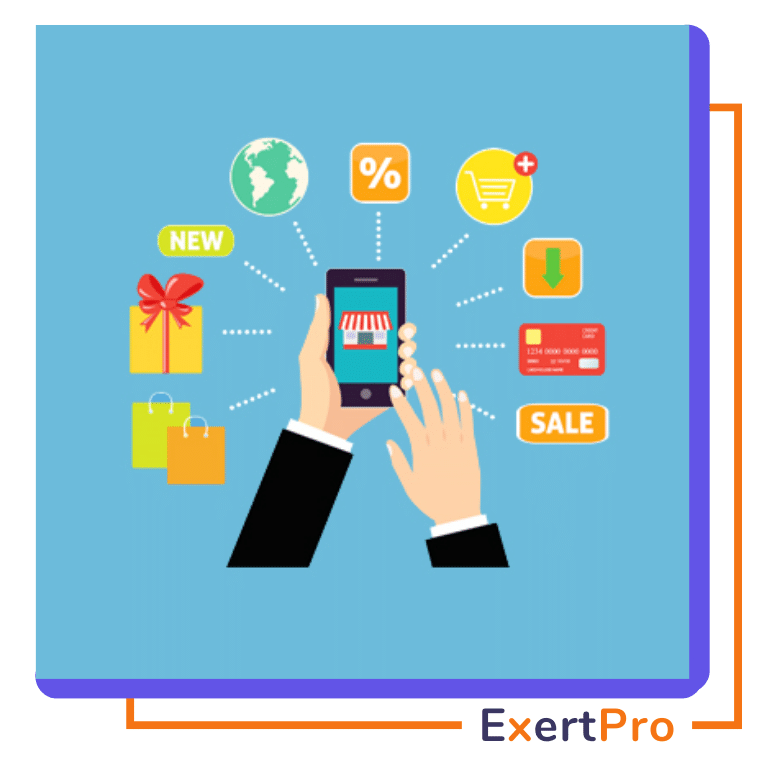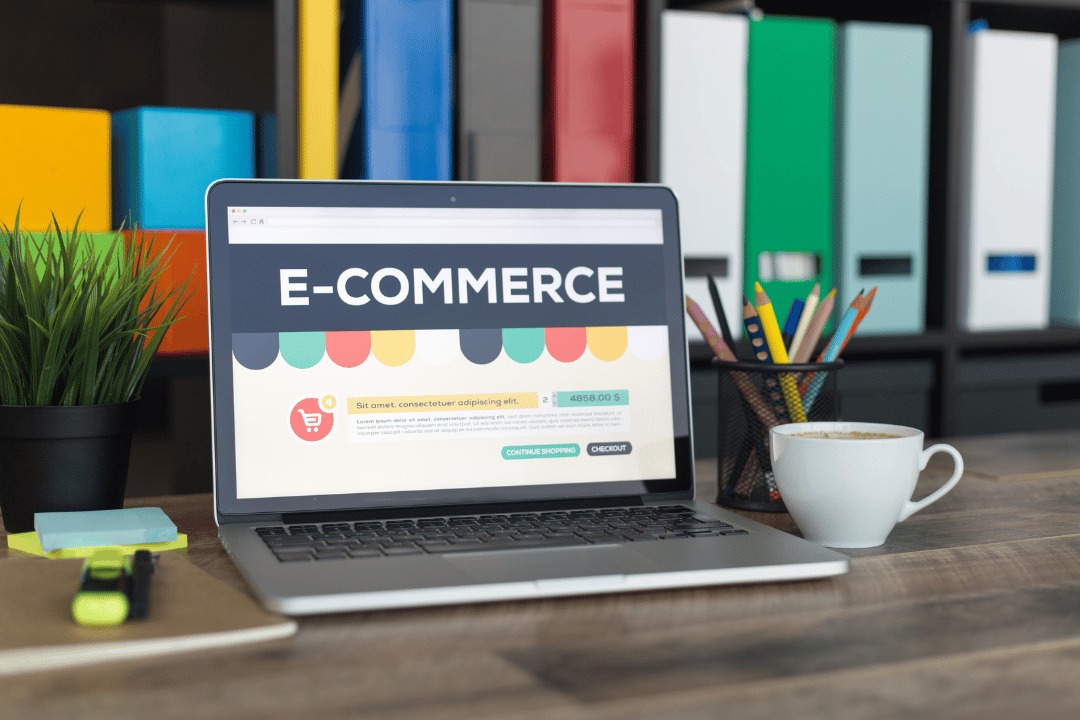When you decide to start an online store, do you know what the most important job is to ensure its success? Well, we are telling you. Choosing the right eCommerce platform for your business is most important to establish your business’s right foundation.
Several eCommerce platforms are available, like Shopify, WooCommerce, Magento, BigCommerce, etc. Each of these platforms is equipped with numerous benefits, features, and costs. So, here comes the need for the e-commerce platform comparison. By comparing the available platforms, you must choose the right one.
While comparing the e-commerce platform, you must consider hosting and platform ownership, the platform’s cost, integration, etc. Also, the other considering factors are user experience and theme, security, speed and scalability, and store functionality. Some more factors are multiple payment systems, mobile-friendliness, OMS, SEO-friendliness, and personalization.
Go through this guide to learn how to make the e-commerce platform comparison and all comparing factor’s details.
What Is An eCommerce Platform?

The software application eCommerce platform allows your online businesses to manage its website, sales, marketing, and operations. The eCommerce platform is likely the business’s home base or central hub.
An E-commerce platform offers every feature needed to run your business successfully. The platform enables online stores to centralize their operations. Also, it allows your online shop to integrate with common business tools. With the help of an eCommerce platform, you can run your business in your way.
Quick Overview Of Best eCommerce Platforms
Before making the E-commerce Platform Comparison, check out the following short overview of different platforms.
| eCommerce Platforms | SaaS / Open – Source | Best For | Transaction Fees | Pricing |
| Shopify | SaaS | Small Business | Depends on third-party payment gateways | $29 – $299 (Per Month) |
| WooCommerce | Open-Source | All Business Types | Depends on payment gateway | Free, available premium extensions |
| Magento | Open – Source, SaaS | Large Enterprise Level Business | Contact for quote | Free & custom rate |
| BigCommerce | SaaS | Medium – Large Business | None | $29.95 – $ 299.95 (Per Month) |
| Sellfy | SaaS | Digital Goods Based Business | No | Free, Per month the paid plan between ($29 – $159) |
How To Choose The Right E-commerce Platform For Your Business – 12 Tips
The all-in-one software solution is the eCommerce platform. It empowers online businesses to manage and regulate their website, sales, marketing, and operations.
A flexible, fast, and cloud-based eCommerce platform can streamline your operational efficiency and deliver memorable customer experiences. The eCommerce platform provides all the opportunities to create your business’s perfect storefront.
E-commerce platform comparison is essential to choose the best platform. But before selecting the best eCommerce platform to create your business, you must consider the following factors:
1. Ownership Of Hosting & Platform
The eCommerce platform can be cloud and self-hosted. If you choose the self-hosted platform, you must select the hosting, look at its updates and monitor its installation. But if you go with the cloud-based option, it can be expensive.
The cloud-hosted platform offers a greater advantage, better security management, and control over the online platform. Moreover, data become more visible. You can get your website’s hosting for the cloud-hosted platform via different solutions like AWS.
However, regarding the ownership of the platform, you can have a Headless, SaaS, or Open-Source platform. Magento and WooCommerce are Open-Source platforms that offer better ownership and control. In this platform, the source code is adaptable and accessible.
You are responsible for open-source platforms’ security issues, web hosting, integrations, and analytics. These are best for IT-infused or Development businesses. However, to change these platforms’ features, you can’t use or update any method.
Compared to open-source solutions, the SaaS eCommerce solution is cheaper. Renting an eCommerce platform means SaaS. The SaaS provider will maintain the hosting, updates, security, and other software management tasks.
But one issue with this platform is the lack of customization and flexibility. However, the best eCommerce platforms enable the business to engage customers from everywhere. And it makes everything easy so that the business can deliver an omnichannel experience to its customers.
2. Ownership Cost
When assessing different eCommerce platforms, the essential thing to consider is pricing. Whichever platform you choose, you must understand each one’s total cost, whether you have a small or large business.
Mostly all the eCommerce platform’s payment system is monthly. Also, each platform has specific processing costs. And while you are making your own choices, you must consider the ongoing and initial expenses.
If you choose the lower-cost package, you may have to sacrifice many features or things. But don’t sacrifice the items you will require at the lower price. Compare your budget and weigh each platform’s pros and cons to get its best value.
And at last, find a way to assess your opportunity cost. Find how your clients will pay the opportunity cost of your products. One example will make the above conversation clear. Payment via third-party vendors isn’t available on some platforms.
So it undoubtedly will create different inconveniences for your clients. Out of this inconvenience payment option frustration, your consumer can abandon the shopping cart.
Below we are presenting the cost of different eCommerce platforms. It will make your E-commerce platform comparison easier.
| Platforms | Starting Cost ($) | Free Trial | Best For |
| WooCommerce | Free | Free | Starter stores or Blogger who started a shop |
| Shopify | $29 (Per Month) | Yes | Small starter stores with 100 SKUs or less |
| Volusion | $26 (Per Month) | Yes | Hobbyists and starter stores |
| BigCommerce | $29.95 (Per Month) | Yes | New Store Builders and business owners |
| Magento | $14 (Per Month) | Demo | Larger enterprise stores |
3. User Experience & Themes
The most popular digital companies like Lyft, Airbnb, and Netflix are uniquely different from their competitor because of different things. It includes elegance, simplicity, myriad choices, and welcoming interfaces.
These famous digital companies work hard to deliver intuitive and excellent UX. One critical differentiator is the user experience quality of your brands other than products and price. Today’s customers are much smarter.
Thus they want to buy products and services from immersive and engaging environments. The theme is one of the crucial parts of your online store as it defines its design. Almost all eCommerce platforms offer numerous articles from which you can choose your favorite one.
Luckily you will get free subscription benefits for some themes. But mostly, the themes are premium. And using these themes requires an additional fee.
This investment is worthy enough. Believe us; it will help your business to stand out from the crowd. To convert your browser’s visitors into buyers, you require a theme with a well-designed experience.
4. Integration
While evaluating most eCommerce platforms’ features, you must consider plugins and integrations. These are also crucial factors. But the problem is that every integration isn’t available on every platform.
Therefore to assess the eCommerce platform’s functions and features correctly, you must understand your business’s requirements. While choosing an E-commerce Platform, we recommend you select the most popular plugins. Those are:
- Email Marketing: With this plugin’s help, you can keep in touch with your customers.
- Payment & Shipping: This plugin will simplify your payments and product shipping process.
- Accounting: It is a popular and crucial plugin both. It delivers sales, revenues, taxes, profit, and other financial information.
- Customer Loyalty Program: Using this plugin, you can reward customers who purchase and repeatedly purchase products.
- 3rd Party Digital Tools: This plugin facilitates easy integration with automation systems, ERPs, CRMs, and other tools.
5. Security Of eCommerce Platform
In this digital era, your website’s security is one of the most concerning factors. You must ensure the presence of stringent global laws protecting consumer privacy. Also, ensure that your most essential assets are safe from security breaches.
eCommerce platform’s security issues are relatively common, and it’s not your fault. Online eCommerce fraud’s top types are phishing, identity, and account theft. Having a business website means you are handling so much sensitive data.
So when considering an eCommerce platform, you must look at its security credentials. Almost every eCommerce platform has some built-in protection. Now you have to find one which provides extra protection to prevent fraud and to monitor DDoS attacks.
The eCommerce owner must be focused on ensuring SSL, PCI compliance, and secure data backups. Before selecting the platform, ensure it is PCI (Payment Card Industry) compliant. It is essential to ensure that the companies maintain a secure environment in transmitting and professing credit card information.
Now go through the table below to learn about the eCommerce security problems and their solutions:
| eCommerce Security Threats & Problems | eCommerce Security Solutions |
| Spam | Secure the admin panels and servers |
| Bots | Anti-malware and antivirus software |
| Financial fraud | Convert to HTTPs |
| Brute force attacks | Using SSL certificates secure your website |
| DDoS attacks | Use firewalls |
| XSS | eCommerce security plugins |
| SQL injections | Ensure multi-layer security |
| Phishing | Payment gateway security |
6. Speed & Scalability Of eCommerce Platform
Evaluating an eCommerce platform’s Scalability, speed, and performance is another essential factor, but it’s more complex. You must find the reasons for 404 errors, slow load times to frozen pages, and other indicators of sluggish performance.
Your eCommerce platform assessment’s critical parts are:
- The platform’s customer handling capability or how many customers it can handle at peak traffic times
- How it scales vertically and horizontally
- Reviewing the typical site speed
- Ability to purge content automatically
- Advanced caching methods
We recommend you seek a scalable and cloud-hosted solution with out-of-the-box functionalities and features. From day 1, it will satisfy all requirements of your growing business. Also, it will enable you to ensure a good user experience and customer support.
7. Store Functionality & Easy Product Management System
Whether you have a small or large business, its lifeblood is the product management system. To create a compelling shopping experience today, the admins require advanced and robust eCommerce product management.
To create the best eCommerce platforms when you assess your store’s functionality, you need to consider the following features:
- Bulk product upload (Excel and CSV files)
- Advanced features
- Categorization
- Dynamic filters
- Shipping options etc.
If the admin gets more power to design a dynamic and robust store, you will have more opportunities to maximize revenue.
8. Multiple Payment Gateways Support
If you provide multiple payment options, your customers can pay quickly for your products and services. You must connect your store with a secure and reliable eCommerce payment gateway to offer numerous payment options.
The use of eWallets is expanding day by day in this digital era. But in the payments realm, they are not a dominant force. However, while choosing an eCommerce platform, ensure it will provide you with numerous payment options. Considering this factor is extremely important to satisfy your customer base.
9. Mobile – Friendliness
Today’s digital era revolves around the mobile phone. Hopefully, we don’t need to explain it to you. Whenever you decide to purchase any product online, what do you do? You search for the product on your mobile, if I’m not wrong. It’s not only you; everyone acts in the same way.
Through mobile, increasing digital transactions and communications are happening. Merchants are also looking for an eCommerce platform to provide a mobile-ready experience. Especially in the post-pandemic world, mobile phone use has dramatically increased.
Now people shop online for everything from household to groceries to medicine and other products. Via smartphones, customers can shop for everything from online stores. So your online stores must select mobile-friendly eCommerce platforms.
The best eCommerce platform’s design and structure will support your customer’s smooth and intuitive journey. Providing a well-designed mobile experience to your customers is necessary from beginning to end.
So while choosing the platform, you must look at its design navigation, general user experience, and layout. Also, the platform needs to be mobile-optimized. It will let you to offer your website’s products and services on Amazon, Instagram, Facebook, and other social channels.
10. OMS (Order Management System)
A speedy and smooth order experience is essential to ensure best eCommerce experience to your clients. After making orders, a more significant percentage of customers expect regular communication.
So to become competitive, you must select an OMS eCommerce platform to make the process accurate, interactive, and transparent. The OMS platform’s features include the following:
- Email notifications
- Order tracking
- Shipping service API
All these features will ensure your customers accurately process the orders on schedule. Additionally, it’s crucial to have seamless communication between IMS (Inventory Management System) and OMS.
The smooth connection will let your shoppers know that the product is in – stock and they are ready to ship. Other major integrations contain the plugin installation and API integrations of the CRM and ERP solutions.
11. Personalization
Before starting your business, you must know product marketing 101. And product marketing’s one aspect is knowing your customers. And this game is named Personalization. You can elevate your business by providing your customers with a personalized experience.
The best eCommerce platforms have these personalization features within them. It dynamically shows your buyers products to buy based on their criteria. However, the personalization criteria include the following:
| Criteria | Features |
| Demographics | Gender, age, location etc. |
| Context | Weather, location, device types, time of day etc. |
| Psychographics | Personality, interest, lifestyle etc. |
| History | Old email interactions, previous purchases, loyalty program member |
| Behavior | Current searches, recently viewed items, products in abandoned carts |
Considering all the above information, the eCommerce platform can provide the customer with a personalized experience in real time.
12. SEO – Friendliness
So what’s the most critical factor for the success of your online store? Well, it’s SEO (Search Engine Optimization). The best eCommerce platform will undoubtedly be equipped with the SEO – friendly structure. Building organic SEO requires time.
However, the task becomes much easier if you choose an eCommerce platform with the best SEO practices. Moreover, the SEO-optimized platform keeps changing by making Google algorithms a priority.
Regarding SEO, don’t assume that every eCommerce platform is built with this feature. Therefore before selecting any platform, you must check its SEO capabilities.
The Comprehensive E-commerce Platform Comparison – Which One Should You Choose?
While selecting the right eCommerce platform for your online business, remember that you won’t get all features in one. You won’t get a one-size-fits-all approach platform. So how do you choose the best one? The answer is, consider your current needs and future requirements before finalizing a platform.
Remember to focus on your available resources, including human and time resources. Also, remember how you will scale up or down your resources based on your online business’s changing requirements.
The solution to all these is to choose a robust eCommerce platform. Make sure it will set up a powerful online storefront and make you the community’s part. You must select one that will enable you to create a network with the industry’s other brands.
Research on all these leading brands:
- Shopify
- Magento
- WooCommerce etc.
And after comparing all their benefits and disadvantages, select the best eCommerce platform for your online stores.
Before Choosing One Platform, Consider Your Options
Some top e-commerce platforms are Shopify, Squarespace Online Stores, Wix Stores, WooCommerce, Amazon, and Magento. While making the e-commerce platform comparison, you must consider all these platforms’ features, advantages, and costs.
We recommend you choose a platform based on all those considerations you will apply to your business. For example, if you are migrating to an online platform from your traditional physical business, you must consider the following:
- Offline store integration
- Inventory management and
- Analytics
On the contrary, consider the following factors if you are a new-age D2C brands owner:
- Pricing
- Availability of knowledge
- Customer support
- Easy of use
- Learning resources
Again if you are looking to scale up your business shortly, then consider the following factors:
- Sales channel integrations
- Headless commerce
- App customization features
- Platform’s availability
Limitations
While making the e-commerce platform comparison, you must consider its disadvantages along with its benefits. After comparing and selecting the best platform still, you can face the following limitations:
- Your selected platform may offer you limitless customization, great flexibility, and a thriving community. But the constraint is you are about to use this platform on specific systems. And if you want the platform’s additional extensions for optimum functioning, it may cost more.
- You may get SEO capabilities, optimal scalability, and mobile-friendliness in your chosen platform. But it costs more compared to other platforms. Moreover, customizing your business’s selected platform may require more time and skills.
- Even if your eCommerce platform offers significant features and themes, it may incur multiple payment processing. Also, your chosen platform may lack email hosting or other features.
So, while choosing the right eCommerce platform for your online stores, you must consider all these issues.
Frequently Asked Questions
Which platform should I choose for my eCommerce website?
Several eCommerce platforms are available for your website, like Shopify, WooCommerce, Magento, BigCommerce, etc. After checking each platform’s features, you can select one that will fulfill your demand.
What makes a good eCommerce platform?
A good eCommerce platform should have all the necessary features to enable an online business to offer an exceptional user experience.
What are the factors to be considered while selecting an eCommerce platform model?
While choosing the right platform, you must select security, scalability, mobility, and flexibility. The other factors to consider are integrations, references, social integrations, reporting, and analytics.
End Note
Hopefully, this guide has helped you to make the E-commerce Platform Comparison. Before choosing one platform, making the available e-commerce platform comparison is a must. Choose one platform that will ensure great success for your business.
We have already described all the things about the e-commerce platform. Now if you have any questions, you can comment. ASAP we will reply to you.





